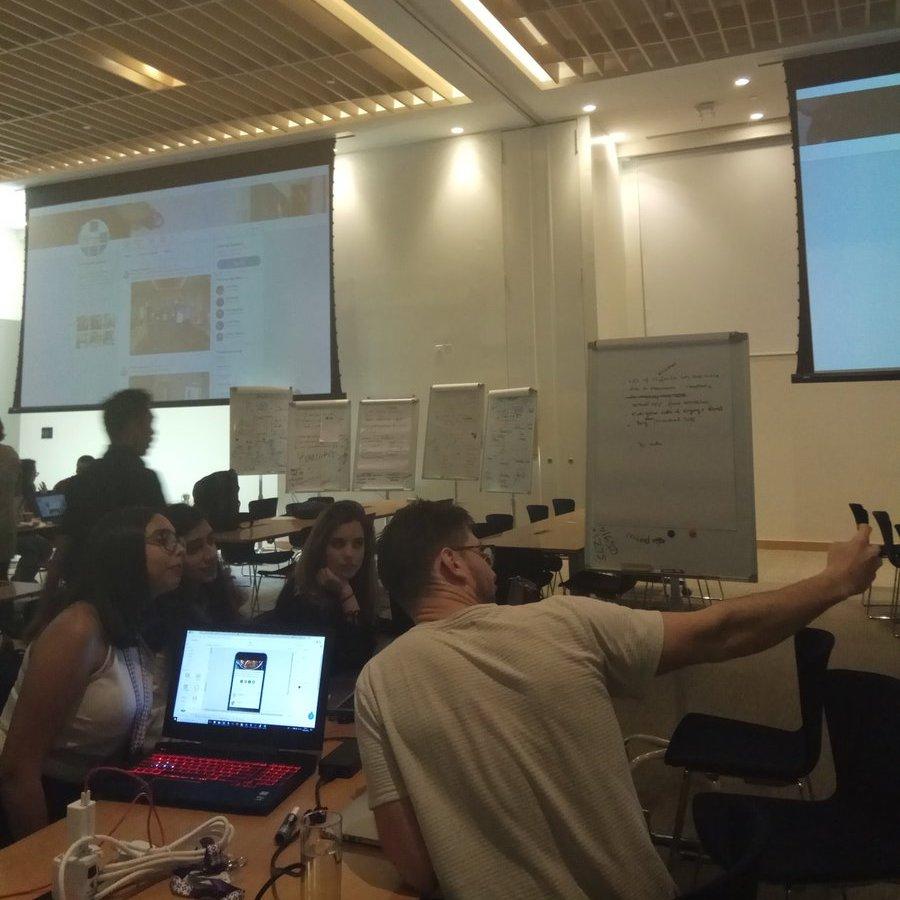The New York University Hackathon 2018
In the Reading like a computer class, I have been working on text computation and what amazed me after I attended the NYUAD 2018 Hackathon this week is that there is more than that. Emotions are also computable, text analysis can be used to help people learn new culture and more!
In this 3-day activity, students from around the world met, paired into teams and presented with social problems. They were then asked to build a mobile application which solves the problem. Students built apps which ranged from Arabic-English medical translators, emotion detectors to be used at schools and Arabic dishes analyzers. In addition, one team made a platform to help job seekers with low or no internet connectivity to be connected to employers. They create profiles by sending text messages to a certain number in order to create profiles which are available on the internet. Finally, employers and employees match.
Due to the fact that I recently learned about OCR (optical character recognition) and text mining in a class called Reading Like a Computer I am taking currently, I was intrigued by Shoofshef, the arabic dish analyzer app, which uses this technique. The app enables the traveler to learn about Arabic dishes by taking images of the menu. Then OCR is used to recognize the text and searches on a database for descriptions and images of the dish.

Even though most teams in the competition used text analysis to solve a social problem, they used different approaches compared to what we have been using in my Reading Like a Computer class. Working in teams enabled the team members to focus more on the areas of their interest which they master properly. For example in building the Shoofshef app, one individual focused on OCR, others on user interface and others on natural language processing. As the result, they made a more comprehensive product. However, in the case of my class, we have been working on individual projects hence we are expected to know how to do every aspect of the analysis which involves software installation, corpus preparation, research and writing scripts which may not be a case. For example, in some text analysis tasks we did in class, it was easier for me to do some tasks than the others. I believe that if I was working in a team, my work could be faster and more efficient.
It is interesting to learn how fast the text computation field is advancing even though it is a very new computational field. Since every aspect of our life involves spoken words or written text, I believe text analysis may bring revolutions and some of them are the mobile applications made by the talented students who participated in the 2018 NYUAD Hackathon. ‘What is now proven was once only imagined.’